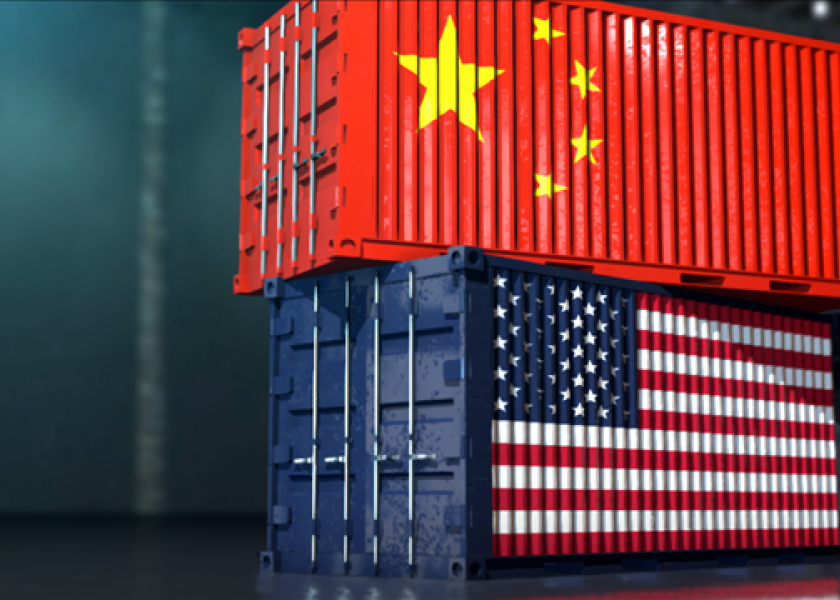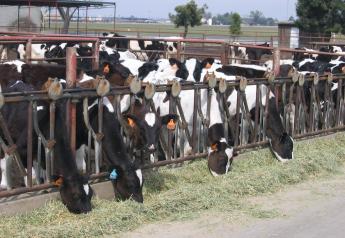Biden Trade Policy w/China: Live Up to Phase 1 Commitments, Stop Unfair Trade Practices

Biden approach: Counter China’s economic threats with trade barriers & other punitive measures
Tai to China: Biden administration will not immediately remove Trump administration’s tariffs and will require that Beijing uphold its trade commitments. Anyone thinking — or wishing — for a real thaw in U.S./China trade relations had their hopes dashed this morning when U.S. Trade Representative Katherine Tai offered the Biden administration’s strongest signal yet that the U.S. combative economic approach toward China would continue. Link to White House fact sheet.
Some developments:
- President Biden will not immediately lift tariffs on Chinese goods, despite some errant conjecture to the contrary.
- The Biden administration said it would re-establish an expired process that gives some companies a reprieve by excluding them from the tariffs. Trade officials would make those decisions based on the priorities of the Biden administration, officials said, without elaborating further.
- The Biden administration will hold Beijing accountable for trade commitments agreed to during the Trump administration. They are lagging some in ag product purchases and a lot in other, primarily energy, product buys. China is on pace to fall short of its 2021 purchasing commitments by more than 30%, after falling short by more than 40% last year, according to Chad P. Bown, a senior fellow at the Peterson Institute for International Economics, who tracks the purchases. Tai reveal she would begin talking with her Chinese counterparts in the coming days about the country’s failure to honor the purchase commitments.
- Facts and figures. China still maintains tariffs on 58.3% of its exports from the U.S.; the U.S. imposes tariffs on 66.4% of the products it brings in from China, according to Bown.
- China disputes it fell short of purchase commitments, noting the Covid pandemic created unique circumstances.
- Biden officials will press China on the issue of subsidies it offers to give its industries a competitive edge. Tai highlighted how some of Beijing’s unfair practices have affected U.S. workers and said the U.S. would continue working with allies to counter them. “We will use the full range of tools (Section 301 of U.S. trade law, for example) we have and develop new tools as needed to defend American economic interests from harmful policies and practices,” she said.
- Biden administration officials acknowledged that talks might not persuade China to abandon its increasingly authoritarian, state-centered approach. Instead, officials noted, the administration’s primary emphasis will be on building the competitiveness of the U.S. economy, working with allies and diversifying markets to limit the impact of Beijing’s harmful trade practices. Last week, the U.S. and Europe announced a new trade cooperation that was partly aimed at countering China’s authoritarian practices, including government intervention in the economy and unlawful technological surveillance.
- “For too long, China’s lack of adherence to global trading norms has undercut the prosperity of Americans and others around the world,” Tai said. “We continue to have serious concerns with China’s state-centered and nonmarket trade practices that were not addressed in the Phase 1 deal,” she added.
- Vilsack comments. The Biden administration also will press in trade talks for China to address 7 of 57 commitments on structural trade barriers that remain unresolved, including easier and faster approval of biotechnology traits in U.S. agricultural products, USDA Secretary Tom Vilsack said in a phone call with reporters. Farmers “can expect that the United States is going to encourage and strongly encourage the Chinese to live up to the responsibilities that they agreed upon” in Phase One trade deal with President Donald Trump, Vilsack said. “They’re still about $5 billion short” on purchase commitments China made under the deal, “And that I think is important,” Vilsack added. China agreed under deal to address 57 non-tariff trade barriers to U.S. agricultural exports, focused on sanitary and phytosanitary issues, Vilsack detailed. If China meets commitment to approve biotechnology traits quickly and easily it “means trade opportunities open up” for U.S. farmers, he concluded.
- Senior administration officials did not rule out the possibility of imposing further tariffs on China if coming talks did not produce desired results, warning Beijing that they would use all available tools to defend the U.S. from state-directed industrial policies that harm its workers.
- Asked if they would consider additional tariffs on China, officials said the Biden administration would not be taking any tools off the table. The administration planned to use the enforcement mechanism established in the Phase 1 trade deal, they said, which would allow the U.S. to resort to further tariffs if consultations were unsuccessful.
- Commerce Secretary Gina Raimondo last week pointed to China’s blocking of its airlines from buying “tens of billions of dollars” of products from Boeing. “The Chinese need to play by the rules,” Raimondo said in an interview with NPR last week. “We need to hold their feet to the fire and hold them accountable.”
Bottom line: Even though President Biden criticized the Trump administration’s aggressive trade policy approach to China, his White House will continue trying to counter China’s economic threats with trade barriers and other punitive measures.
Tai said that her office has conducted a comprehensive review of the Phase 1 trade agreement the U.S. reached with China last year during the Trump administration. She is expected to have a telephone call with her Chinese counterpart, Vice Premier Liu He, to discuss China’s performance.
Tai believes that decoupling with China is not a “realistic outcome in terms of our global economy.” Rather, Washington will pursue a course of “durable co-existence” with Beijing, she said. “Our objective is not to inflame trade tensions with China,” she said, defining the administration’s goal as “re-coupling,” or to have trade with China but without falling into dependency. “China is a participant in the global economy, and it is the one that we have unresolved issues with. I don’t think there is a path to addressing those issues without having a direct conversation with China and direct communication with China,” she said. In that vein, she said the U.S. will continue to support the WTO, but will also need to “be agile,” and “think outside of the box with respect to how we can be more effective in addressing the concerns that we have been struggling to address with China on trade.”
The Biden administration is also looking into incentives to encourage companies to “buy Americans up and down the supply chain,” she said.
As noted, the U.S. will not pursue Phase 2 negotiations with China on deeper structural issues such as massive subsidies to vital industries that skew global markets, because Beijing is “doubling down on its authoritarian state-centric approach,” senior administration officials said during a press call on Sunday. “We recognize that China simply may not change, and that we have to have a strategy that deals with China as it is, rather than as we might wish it to be,” one of the officials said.
Said one U.S trade policy observer: “To me the single biggest issue facing future presidents will be how to manage a commercial relationship with China…i.e., agricultural sales… while countering their offensive strategy towards Southeast Asia….i.e., Taiwan….Africa and the Middle East via their Belt and Roads Initiative (modem day Silk Road).”






